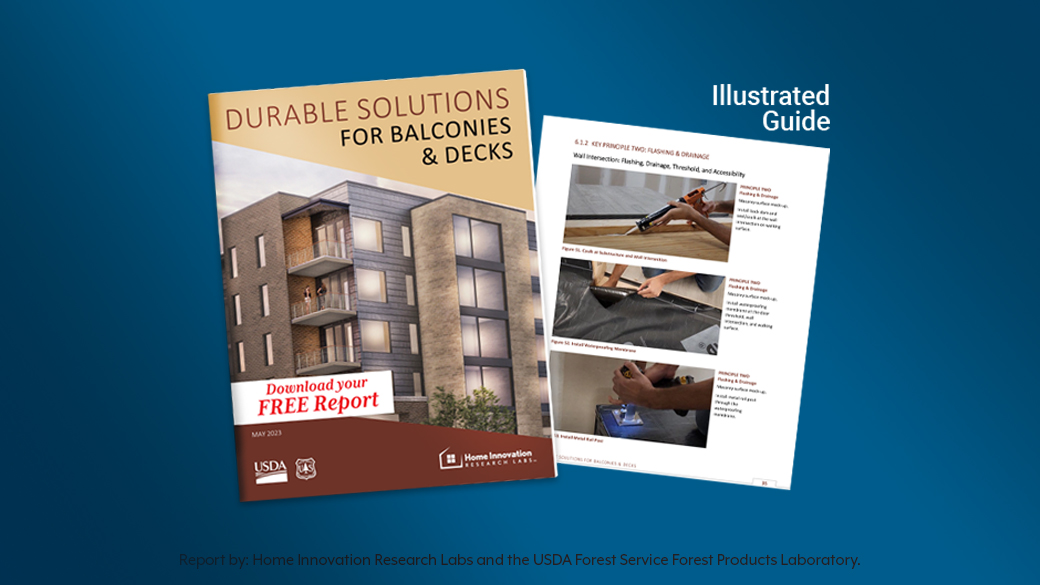Durable Solutions for Balconies and Decks is a comprehensive 65-page illustrated guide for professionals who want to set optimal standards by implementing the best wood-framed construction practices for cantilevered decks and balconies.

The report was written and researched by Home Innovation Research Labs and the USDA Forest Service Forest Products Laboratory. A team of highly experienced industry experts worked together to determine the best building techniques to improve moisture performance for wood frame construction.
Download Your Free Copy of Durable Solutions for Balconies and Decks
The Report Includes a Detailed Analysis of Three Fundamental Design Principles
Each principle focuses on building techniques to improve the durability of balconies and decks, which, if poorly constructed, can be vulnerable to moisture infiltration and the potential for structural failure.
Principle One | Sloping the Walking Surface & Waterproofing Membrane Proper drainage prevents water from pooling on the deck surface or between the building envelope and the deck or balcony structure. Read the report in full to learn more about how positive slopes and drainage can help prevent premature rot.
Principle Two | Flashing & Drainage Conceptual sketches illustrate the drainage principle for the balcony or deck substructure, which is particularly vulnerable to infiltrations. Download the report to learn how to construct a waterproof moisture barrier system, including drainage features and multiple layers of flashing.
Principle Three | Ventilation & Drying Good air circulation will allow materials in the balcony or deck assembly to dry out should they ever get wet. Download the report to see the recommended best practices.
The extensive report includes over 80 images, diagrams, photos, and other helpful resources, such as:
- A Building Code Overview
- Cantilevered Balcony Deck Framing Dos & Don’ts
- Continuous Maintenance Inspection Checklist
Don’t miss out on your invaluable FREE Report
The Durable Solutions for Balconies and Decks report is a resource for construction professionals and is not a substitute for qualified professional advice or guidance. Always consult with your local building code official.
